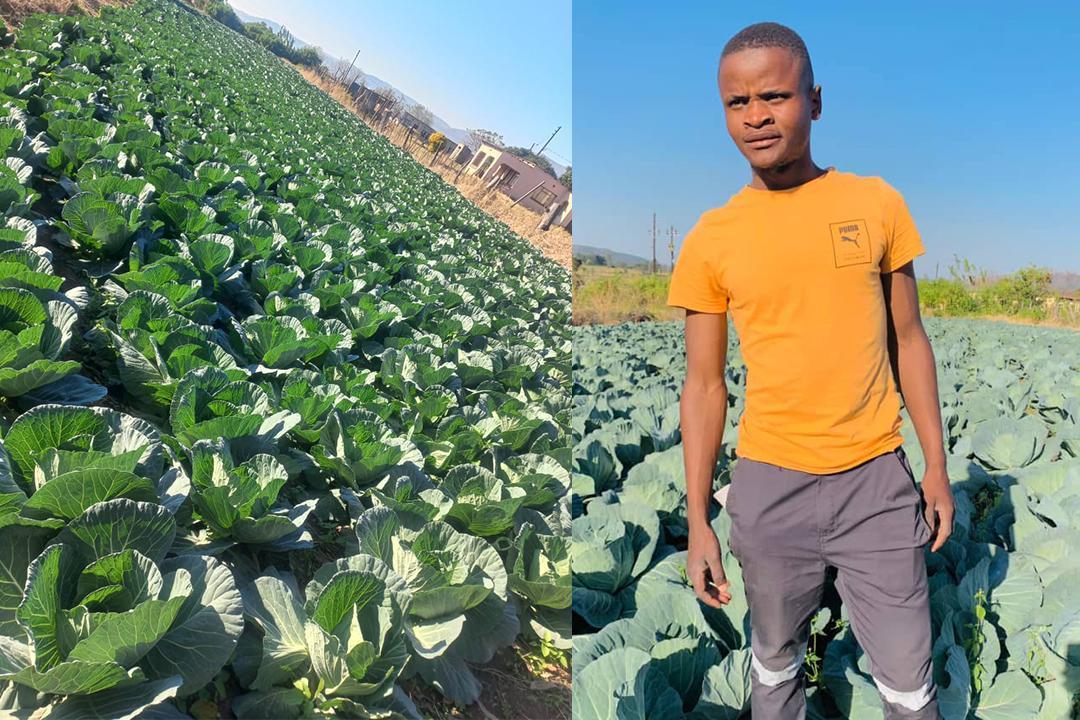Africa-Press – Eswatini. I had to wake up at 3 a.m. to water the crops, then head to class like nothing happened.”
This is how 25 year old Almighty Sukati sums up the life he built while studying Agronomy and running a cabbage farm in Moneni. Raised by his mother in Nkomanzi, driven by determination, Sukati chose farming not just as a career but as a path to a better future.
Almighty’s childhood was far from easy. Raised by a single mother who took on piece jobs to support six children, he knows hardship well. “It was not easy,” he reflects. “The little she earned couldn’t sustain us all.” Still, his mother always emphasised one thing above everything else, education. That message stayed with him. Even as a boy, Almighty hustled to stay in school, raising goats and keeping chickens to support himself.
This early sense of responsibility planted a seed, not just for survival but for possibility. When he enrolled at university to pursue a Bachelor of Science in Agronomy, it felt like a natural next step. “Agronomy made sense. It’s not just a degree , it’s something practical. I needed something that could sustain me even before getting a job,” he explains.
University life brought its own challenges. Student allowances often arrived late, forcing him and six peers to improvise to survive. Together, they decided to farm. “We had a good harvest,” he recalls, “but we also made a lot of mistakes.” Costs were high and profits low. Still, the experience proved invaluable. “It was our first time, and we didn’t check feasibility. But we learned.”
Those lessons shaped the farmer he is today. Now, Sukati runs a growing vegetable farm in Moneni. While he currently focuses on cabbages, his plans are bigger expanding into field crops like maize and beans. With a lease that allows more land use and a wealth of agronomic knowledge, he’s making strategic decisions. “I don’t just plant,” he says. “I do soil tests, study cost benefit ratios, and apply everything I’ve learned in class.”
Yet, farming remains demanding. Sukati admits it requires passion and dedication. “Farming without dedication is impossible. I’ve had to balance fieldwork and academic deadlines, waking at 3am to change sprinklers before class. But I never treated it like a side hustle. It’s a business and a lesson.”
Though he has made significant progress, Sukati still manages the farm mostly on his own. Occasionally, he hires locals to help maintain the field, creating small scale employment. “I do get people to assist with maintaining the field. It’s not much, but it’s something,” he says.
His days are long and intense. “I wake early and spend the whole day in the field. I don’t stage my crops all at once. I plan it out. I don’t work on soil that hasn’t been tested,” he explains. This technical and careful approach sets him apart from many young farmers. “I use what I learned in university. There are no problems in the field I can’t solve myself — thanks to Agronomy.”
The journey has not been without setbacks. Poor planning once led to losses, but instead of giving up, Sukati adapted. “Farming is full of risks,” he admits. “You have to plan, analyze your market, and stay grounded. There are only two things to manage , improve your weaknesses and maintain your strengths.”
What drives him most is deeply personal. “I just want to make my mother proud. That’s my fuel,” he says. “I want to change our story.” For other young people who want to farm but fear a lack of resources, Sukati offers simple advice: “You just need the desire to start. Don’t overthink it. Use what you have. People want to be technical, but farming is practical. Start small. Start somewhere.”
For More News And Analysis About Eswatini Follow Africa-Press







